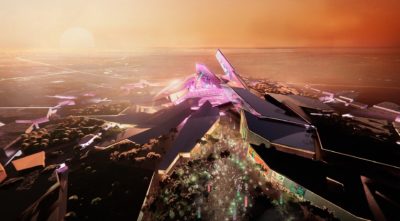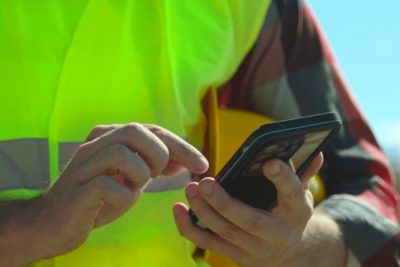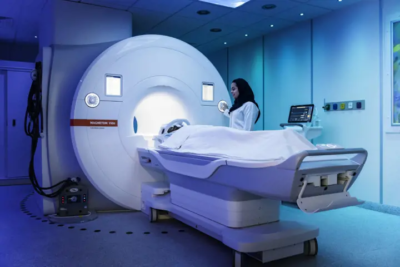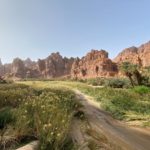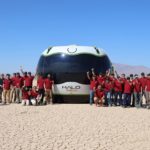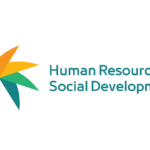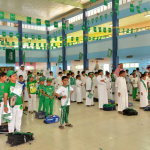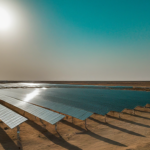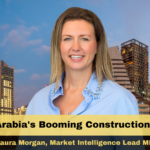
“We engaged in a very open discussion, and to be honest we are artists. This festival is for artists; it’s backed by artists. It’s some sort of national dream [for us] to have this festival. We know that we come from the grassroots. This makes us really strong. When we make a case for coming to our festival, people see that we come from their world. They can relate. And to be honest, the result is beyond phenomenal.”
-Mahmoud Sabbagh, Saudi Arabian film director and president of Saudi’s Red Sea International Film Festival, the kingdom’s first full-fledged festival and market. The ambitious event will run March 12-21 in Jeddah. [variety.com]

“Job numbers in Saudi Arabia are buoyant and demand for talent has increased significantly. In turn, employers are having to be competitive with the salaries they offer in order to attract the very best individuals over the competition. As the main business hub in Saudi Arabia, it is not surprising that Riyadh was home to the greatest number of pay increases, as competition amongst employers for top talent is highest here and increasing salaries is one of the sure ways to secure this talent in the short term.”
-Chris Greaves, MD of Hays, a recruiting organization in the Gulf region. The ‘Hays Saudi Arabia Salary and Employment Trends’ report reveals 45% of employees experienced a pay increase in Saudi Arabia. [recruiter.co.uk]

“We want Saudi Arabia to emerge as one of the centers of great content production in the region besides Egypt and Lebanon. We see ourselves doing more and more there. There is significant investment under the Vision 2030 plan and it goes into the entertainment industry — everything from developing acting schools and sound stages to encouraging physical production in Saudi. It’s a big theme for the Saudi government and we are very supportive of that.”
-Johannes Larcher, MBC executive, after the company said earlier this month to become an anchor tenant in the new media zone in the Saudi capital. [arabnews.com]

“We just came back from a very important trip to the Kingdom of Saudi Arabia. It was the first such trip we have had to the kingdom and we feel it was very productive. Very encouraging…We had an open dialogue. We met with high-level officials and raised our concerns, they raised their concerns, and we firmly believe that this a step in a long and productive relationship.”
-Arthur Stark, Chairman of the Conference of Presidents of Major American Jewish Organizations, speaking about a recent visit group leaders made to Saudi Arabia. The visit, which took place from Monday to Thursday, included meetings with senior Saudi officials. [timesofisrael.com]

“We just came back from a very important trip to the Kingdom of Saudi Arabia. It was the first such trip we have had to the kingdom and we feel it was very productive. Very encouraging…We had an open dialogue. We met with high-level officials and raised our concerns, they raised their concerns, and we firmly believe that this a step in a long and productive relationship.”
-Arthur Stark, Chairman of the Conference of Presidents of Major American Jewish Organizations, speaking about a recent visit group leaders made to Saudi Arabia. The visit, which took place from Monday to Thursday, included meetings with senior Saudi officials. [timesofisrael.com]

“The strongest clusters of emerging markets are in the Arabian Gulf and Southeast Asia, thanks to business-friendly conditions and core strengths that draw logistics activity. In the Gulf, UAE (No. 3), Saudi Arabia (6), Qatar (7), Oman (14), Bahrain (15) and Kuwait (19) rank strongly.”
-Agility.com published its 2020 Agility Emerging Markets Logistics Index, which ranks countries by factors that make them attractive to logistics providers, freight forwarders, shipping lines, air cargo carriers and distributors. Saudi Arabia was also ranked top 3 for ‘best business fundamentals.’ [Yahoo Finance]

“If you want to be big in the Middle East, you need to be in Saudi—full stop.”
-Ronny Froehlich, German entrepreneur, in his company’s new office in Riyadh. The growing number of startups in Riyadh is set to rival neighboring Dubai. [bloomberg.com]

“It brings us immense pride to have six of our short films brought onto Netflix. We are excited to bring the work of local Saudi talents to 167 million subscribers around the world. Telfaz11 Studios produces authentic and intriguing stories from our culture, and we cannot wait for the world to see what we have to offer.”
-Alaa Fadan, Chief Executive Officer at Telfaz11 Studios, commenting to Deadline on their agreement with Netflix which will badge the films under the banner Six Windows in the Desert. [deadline.com]

“The Saudi ICT market is grappling with a wave of new digital transformation realities. The growth we are seeing in ICT spending is primarily being driven by an increased focus on giga projects and smart governance. These initiatives are spurring the adoption of artificial intelligence, robotics, the Internet of Things, cloud, blockchain, and a host of other emerging technologies as both the public and private sectors look to create synergies, cut costs, increase safety, and optimize processes across verticals in a whole new way.”
-Hamza Naqshbandi, International Data Corporation (IDC) country manager for Saudi Arabia, discusses Saudi Arabia’s ICT sector at the recent IDC Directions 2020 conference in Riyadh. IDC forecasts ICT spending to top $37b in 2020, up over 4% on the previous year. [IDC.com]

“Although further effort is needed for Saudi Arabia to become a transparent market, there remains strong political will to continue implementing positive reforms to its economy and the real estate market in particular.”
-Dana Salbak, Head of Research, MENA, JLL. The company recently released its 2019 Year in Review report for Saudi Arabia which found the Kingdom “has witnessed rising transparency over the past three years and the government will continue to work towards improving market transparency.” [jll-mena.com]
